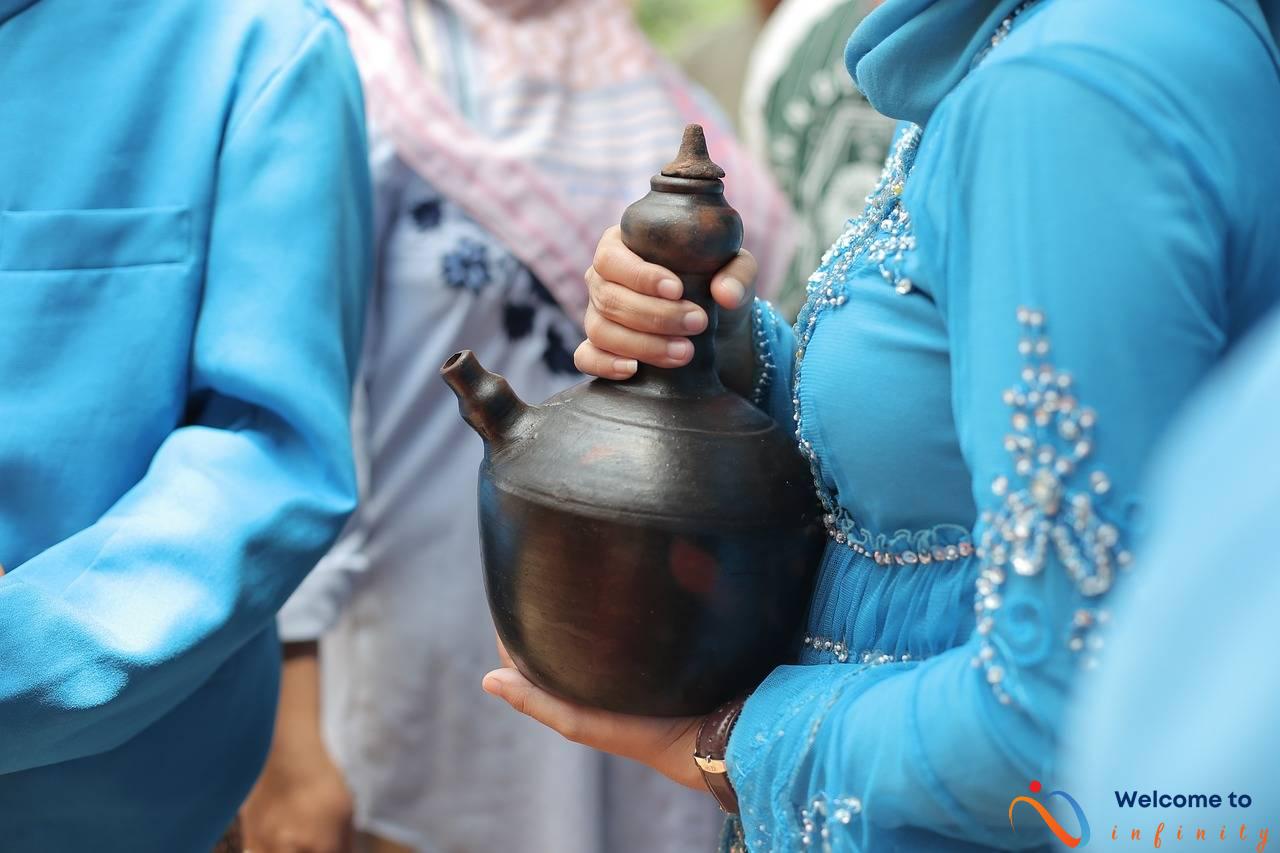Getting married is a special and joyous occasion, but it can also be a breeding ground for family drama. Relatives may want to get involved in the planning, bring up old grudges, or cause a scene on the big day. It can be overwhelming and stressful, but here are some tips to help you deal with family drama on your wedding day.
The first step is to set boundaries. Be clear about what you expect from your family members and communicate it early on. You may need to have difficult conversations, but it's important to establish what is and isn't acceptable behavior. Stick to your boundaries and don't be afraid to enforce them if necessary.
It can also be helpful to enlist the help of a wedding planner or day-of coordinator who can handle any conflicts that may arise. If you have a family member or friend who is particularly good at diffusing tense situations, consider asking them to be your go-to person on the day of the wedding.
- Have a Plan B in case a family member does cause a scene. This could mean talking to your venue and vendors ahead of time to prepare for potential issues, or having a designated “problem solver” who can quickly diffuse any conflicts.
- If you're dealing with more complicated family dynamics, try to have honest conversations before the wedding day to avoid any surprises. It may be uncomfortable, but preemptively addressing any issues can prevent them from escalating on the day of the wedding.
- If you're worried about family drama overshadowing your wedding day, consider having a smaller ceremony without all the extended family present.
Ultimately, it's important to remember that your wedding day is about you and your partner. Don't let family drama detract from what should be a day filled with love and joy. If you do encounter conflicts, take a deep breath and focus on what's really important: your relationship with your partner and the commitment you're making to each other.
Set Boundaries
One of the best ways to deal with family drama on your wedding day is to set boundaries early. This involves communicating your expectations to your family members and being clear about what behavior is and isn't acceptable. It's important to have this conversation before the wedding day to prevent any misunderstandings.
When setting your boundaries, be firm and confident. Don't be afraid to say no or enforce consequences if someone crosses a line. This can be difficult, especially with family members, but it's essential to ensure a stress-free day.
Additionally, be sure to stick to your boundaries. If someone repeatedly disrespects them, don't hesitate to ask them to leave or remove them from the event. Remember that your wedding day is about you and your partner, and you have every right to protect it from drama and negativity.
If you're struggling with how to communicate your boundaries effectively, consider writing them down in a contract or agreement. This approach can help ensure that everyone is on the same page and prevent any misunderstandings.
- Be clear about what behavior is and isn't acceptable
- Enforce consequences if necessary
- Stick to your boundaries
- Consider writing them down in an agreement
Remember, setting boundaries doesn't mean cutting off your family members or being confrontational. It's about creating a safe and happy environment for you and your partner on your special day. With clear communication and firm boundaries, you can enjoy your wedding day without any unnecessary drama.
Enlist Help
Dealing with family drama on your wedding day can be overwhelming. However, enlisting help from a wedding planner, day-of coordinator, or trusted family member/friend can make a huge difference. These people can step in and handle any conflicts, allowing you to relax and enjoy your special day.
A wedding planner can help to coordinate the details of your day, including communication with vendors, creating a timeline, and managing any unexpected situations that may arise. A day-of coordinator can be especially helpful in managing the logistics of your wedding day, ensuring that everything runs smoothly and dealing with any issues that may come up.
Having a trusted family member or friend who can act as a mediator is also important. This person can help to diffuse any conflicts between family members and ensure that everyone is on the same page. It's important to choose someone who is level-headed and able to handle the stress of the situation.
Enlisting help may seem like an added expense, but it can truly be a lifesaver on your wedding day. Your wedding is one of the most important days of your life and having someone who can help to alleviate stress and manage any conflicts that may arise can make all the difference.
Have a Plan B
If you're concerned that a family member might cause a scene on your wedding day, it's important to have a plan in place. This could involve delegating someone to mediate or remove the individual from the event if necessary. You may also want to consider discussing this plan with your venue and vendors ahead of time, so they know what to expect and can be prepared to help.
Having a structured policy in place can help avoid drama and minimize any disruptions that might occur. Consider working with your wedding planner or a trusted family member to establish your ground rules and come up with a plan that everyone understands. Knowing that you have a solid backup plan in place can help you feel more relaxed and centered on your big day.
- Designate a trusted person to handle any conflicts on the day of the wedding.
- Create clear and concise guidelines for what behavior is and isn't acceptable at the event.
- Be prepared to remove or escort anyone who is disrupting the event.
By communicating your expectations early on and setting clear boundaries, you can help minimize the risk of any drama on your special day. Remember that, ultimately, this is about you and your partner, and that your relationship should be the main focus. By taking the time to prepare for any potential issues, you can ensure that your day is stress-free and memorable for all the right reasons.
Have Honest Conversations
Dealing with complicated family dynamics can be challenging, especially during weddings. Suppose you have any concerns or doubts about how certain family members will behave during the event. In that case, it's best to have honest conversations with them before the wedding day arrives. It's important to communicate your feelings and expectations openly and listen to their perspectives as well to avoid any surprises.
These conversations may not be easy, but they can help you clear the air and prevent any misunderstandings that could potentially ruin your special day. Moreover, if there are any specific issues that need to be addressed, having a candid conversation will give you an opportunity to come up with a solution and prevent any negative consequences. It's always better to address potential issues before they become too significant to handle.
If possible, try to have these conversations in person rather than over the phone or via text messaging. Face-to-face conversations allow you to read the other person's body language and show that you care enough about their feelings to have a meaningful dialogue.
However, if there are family members who refuse to engage in a constructive conversation or who continue to act disrespectfully, it may be necessary to set firmer boundaries and limit their involvement in your special day.
Remember, your wedding day is about celebrating the love and commitment between you and your partner, and it's crucial to do everything you can to ensure that you have a memorable and joyful experience.
Consider a Small Ceremony
While weddings are often associated with large guest lists and extended family, for some couples, a small ceremony may be the way to go. This can be especially true for those who are dealing with family drama and conflict.
A small ceremony can mean different things for different couples. It could be as simple as just immediate family and a few close friends, or it could be an elopement with just the two of you. Whatever the case may be, it can be a way to keep your wedding day focused on you and your partner, without any distractions or drama from extended family members.
Of course, it's important to consider the thoughts and feelings of those who may not be invited to the ceremony. It's possible that some family members may be hurt or offended if they're left out. In these cases, it's important to have honest conversations and explain why you've made the decision to have a small ceremony. Being clear and communicating early on can help prevent any misunderstandings or hurt feelings.
If you do decide to go with a small ceremony, there are plenty of ways to make it special and memorable. You can choose a unique location, write your own vows, or incorporate meaningful traditions or rituals. And if you still want to celebrate with extended family and friends, you can always plan a separate reception or celebration at a later time.
Ultimately, the decision of whether or not to have a small ceremony is a personal one that depends on your individual situation. It can be a way to remove any potential drama and keep the focus on you and your partner, but it's important to consider the feelings of others and communicate openly and honestly.
Focus on Your Relationship
On your wedding day, it can be easy to get caught up in the stress of family drama. However, it's important to remember that this day is about you and your partner. Don't let any conflicts or negativity detract from the love you share.
Take a moment to refocus your energy and remind yourself of what's truly important. Make a conscious effort to tune out any drama and focus on the joy of marrying the person you love.
If you find yourself getting overwhelmed, take a step back and take a deep breath. Consider taking a few moments alone with your partner to recharge and connect. Remember that your relationship is the foundation of this special day, and it deserves your attention and care.
Communication with your partner is key in navigating any family drama. Lean on each other for support, listen to each other's concerns, and work together to find solutions. At the end of the day, it's your love that brought you to this point, and it will carry you through any challenges that come your way.
It's important to set boundaries with family members and have a plan in place for any potential issues. But at the same time, remember to keep your focus on your relationship and the love you share. By doing so, you'll be able to enjoy your special day and build a strong foundation for your future together.
Take a Breath
Weddings can be incredibly stressful, especially when family drama arises. Despite all your efforts to prevent it, there may still be some uncomfortable situations that arise on your wedding day. But when the tension starts to build up, it is essential to take a step back, take a deep breath, and remind yourself of what's truly important.
It's easy to get caught up in the drama and let it consume your thoughts, but when it comes down to it, your wedding day is about you and your partner. The most crucial thing is that you two are beginning your lives together, and nothing should diminish that. So, if something or someone is causing tension, make a conscious effort to take a break and focus on what matters most.
One way to do this is to step away and take a few moments for yourself. Go to the bathroom, take a walk, or find a quiet spot where you can collect your thoughts. Take a few deep breaths, and remind yourself why you're getting married and who you're marrying.
If you have a trusted friend or family member nearby, talk to them about how you're feeling. Often, simply expressing your emotions out loud can help put things in perspective and offer you the support you need to move forward.
Remember that while family drama can be unpleasant, it doesn't have to ruin your day. Take control of what you can, let go of what you can't, and above all, relish in the moment with your beloved partner.












